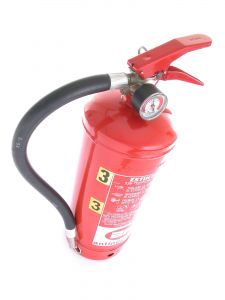Attorney J. Bradley Smith answering the question: “I was found not guilty of a charge, but my record still shows the charge.”
In a sad and somewhat surprising criminal law incident from late last month, a woman from Charlotte, NC found herself in jail after being arrested for putting her dog in the trunk of her car. The case ended in charges of animal cruelty for Isla Corina Delcid-Almedare.
 According to authorities, Delcid-Almedare was arrested after fellow shoppers at a North Carolina flea market said they saw her lock her dog in the trunk of her car. One eyewitness said that he saw Delcid-Almedare walking her dog at the Barnyard Flea Market along Highway 51 near the state line when he then watched as the woman closed the dog in her vehicle’s trunk.
According to authorities, Delcid-Almedare was arrested after fellow shoppers at a North Carolina flea market said they saw her lock her dog in the trunk of her car. One eyewitness said that he saw Delcid-Almedare walking her dog at the Barnyard Flea Market along Highway 51 near the state line when he then watched as the woman closed the dog in her vehicle’s trunk.
The man said that after he saw her close the dog in the car, he went to look for a police officer. It took some time before deputies were able to arrive and get the trunk opened. Police say the month-old Shih Tzu puppy was in the trunk for approximately an hour while Delcid-Almedare went shopping. Police say that they spent time trying to locate Delcid-Almedare and then have her return to unlock the trunk.
Witnesses said that a crowd gathered around the car once word got out about what had happened. By the time the little dog was finally rescued from the trunk it was soaking wet with sweat. The temperature in late August was high and police say it is substantially hotter in an unventilated trunk.
Delcid-Almedare’s brother has since spoken out about the incident, saying that his sister never meant to do it. He says that his sister would never have intentionally hurt an animal and that he thinks the entire incident was a big mistake. He believes Delcid-Almedare put the dog in the trunk intending to return quickly, but then lost track of time.
 Charlotte Criminal Lawyer Blog
Charlotte Criminal Lawyer Blog










 Police say that Pace forced his way in the museum through an exterior door. A fire alarm was then activated inside the Nature Research Center shortly after 3:30 in the morning. Security camera footage shows Pace, wearing a white jacket and dark clothing, using a nearby fire extinguisher to bust down the door to the museum.
Police say that Pace forced his way in the museum through an exterior door. A fire alarm was then activated inside the Nature Research Center shortly after 3:30 in the morning. Security camera footage shows Pace, wearing a white jacket and dark clothing, using a nearby fire extinguisher to bust down the door to the museum. Police say their crime unraveled when officers with a cybercrime unit in Fairfax County, Virginia noticed a video several weeks ago that had been posted online showing the two engaging in sex acts with several dogs. The couple is accused of making the video at home and then sharing it through a website devoted to such acts.
Police say their crime unraveled when officers with a cybercrime unit in Fairfax County, Virginia noticed a video several weeks ago that had been posted online showing the two engaging in sex acts with several dogs. The couple is accused of making the video at home and then sharing it through a website devoted to such acts. According to officials with the state, the law is clear that local sheriffs do not have the legal right to deny any Iowan the right to carry a gun based on a physical disability. The news has some blind gun owners rejoicing including one man, Michael Barber, who told reporters at an Iowa gun store that he was thrilled with the news. Barber said, “When you shoot a gun, you take it out and point and shoot, and I don’t necessarily think eyesight is necessary.”
According to officials with the state, the law is clear that local sheriffs do not have the legal right to deny any Iowan the right to carry a gun based on a physical disability. The news has some blind gun owners rejoicing including one man, Michael Barber, who told reporters at an Iowa gun store that he was thrilled with the news. Barber said, “When you shoot a gun, you take it out and point and shoot, and I don’t necessarily think eyesight is necessary.” The SBI says that its agents are focusing on doctors, nurses and pharmacists as well as other health care workers that might be involved in diverting prescription drugs from patients who desperately need the medicine. According to authorities, painkillers are the most often stolen drugs and the central focus for ongoing law enforcement efforts.
The SBI says that its agents are focusing on doctors, nurses and pharmacists as well as other health care workers that might be involved in diverting prescription drugs from patients who desperately need the medicine. According to authorities, painkillers are the most often stolen drugs and the central focus for ongoing law enforcement efforts. Police in Whiteville, NC say that received a call over the weekend about a domestic dispute in Mary Gowans’ home. When they arrived they found a chaotic scene with multiple people screaming. Police say that Gowans had forced her 15-year-old son to strip down to his underwear when she then attacked him with a belt, causing severe injuries and large lacerations across his body. Gowans then ordered her 12-year-old son to take over and continue beating the older boy due to his sexual orientation.
Police in Whiteville, NC say that received a call over the weekend about a domestic dispute in Mary Gowans’ home. When they arrived they found a chaotic scene with multiple people screaming. Police say that Gowans had forced her 15-year-old son to strip down to his underwear when she then attacked him with a belt, causing severe injuries and large lacerations across his body. Gowans then ordered her 12-year-old son to take over and continue beating the older boy due to his sexual orientation. A recent piece in the journal Criminal Justice Ethics deals with a related theme, how the current criminal justice system financially incentives wrongful convictions. Specifically, the article noted how crime labs in many states are actually funded through court fees, something that the authors say act as a channel for bias to enter the crime lab analysis.
A recent piece in the journal Criminal Justice Ethics deals with a related theme, how the current criminal justice system financially incentives wrongful convictions. Specifically, the article noted how crime labs in many states are actually funded through court fees, something that the authors say act as a channel for bias to enter the crime lab analysis. According to authorities, Bader was at her home late Monday night when her roommate and his brother were in the living room, drinking and watching a loop of classic rock songs by the Eagles on the television. Bader apparently grew weary of hearing “Hotel California” blasted over and over again and told the two men to turn off the music.
According to authorities, Bader was at her home late Monday night when her roommate and his brother were in the living room, drinking and watching a loop of classic rock songs by the Eagles on the television. Bader apparently grew weary of hearing “Hotel California” blasted over and over again and told the two men to turn off the music. According to the Mothers of Murdered Offspring, the vigil was taking place to call attention to the recent death of a Charlotte man who police say was shot and killed when he attempted to rob a convenience store. About 50 people were gathered to honor the man killed in the shooting when, at around 10:30 p.m., gunshots erupted.
According to the Mothers of Murdered Offspring, the vigil was taking place to call attention to the recent death of a Charlotte man who police say was shot and killed when he attempted to rob a convenience store. About 50 people were gathered to honor the man killed in the shooting when, at around 10:30 p.m., gunshots erupted. According to a spokesperson for the department, Officer Randall Kerrick, is now in custody after the victim, 24-year-old Jonathan Ferrell, was killed during an encounter with police after wrecking his car. The police department conducted an investigation after the deadly shooting and determined Kerrick’s actions were excessive, saying that Kerrick did not have the authority to discharge his weapon during the encounter.
According to a spokesperson for the department, Officer Randall Kerrick, is now in custody after the victim, 24-year-old Jonathan Ferrell, was killed during an encounter with police after wrecking his car. The police department conducted an investigation after the deadly shooting and determined Kerrick’s actions were excessive, saying that Kerrick did not have the authority to discharge his weapon during the encounter.